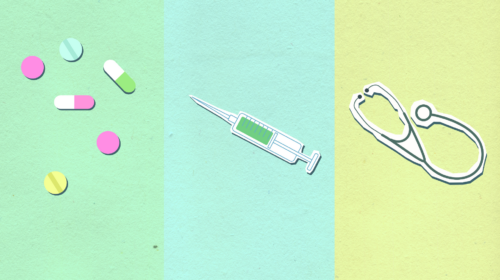The disease of addiction is a disease of isolation, which is why community and relationships can be very positive. However, when it comes to dating in recovery, there’s no “recovery fairy” that tells you that you’re ready. Only you know when you’re ready to date again.
A common guideline suggests waiting for a year of sobriety before making significant life changes, including dating, but this can vary depending on individual circumstances. During that first year, you’re consistently encouraged to focus on growing and improving yourself. Making big changes during this vulnerable period makes it harder to manage your emotions if things don’t work out.
It’s important to recognize that everything works on a case-by-case basis because no two people are the same. What might work for one person’s recovery and self-improvement might not work for another’s. Drug addiction affects relationships and how we look at them in a number of ways.
For some people who are in recovery, men, women, partners, or sex were all their very first addictions. In a number of ways, people can get a high from sex, love, or relationships.
Learning How to Love Yourself First
Many relationships fail because we want to feel loved or look sexy in someone else’s eyes. This is an issue because we often fail to feel these things about ourselves without someone else’s validation.
You have to learn who you are and what you like about yourself before trying to figure someone else out. If you are not secure in your own identity, there is a risk of becoming overly dependent on a partner’s identity, which can be unhealthy.
It’s significant to have a solid foundation in your recovery before looking to date again. If you’re not in a place where you’re actively working on yourself, the relationship is doomed to fail before it begins.
It’s important to constantly remind yourself that there’s no rule or timeline for healing and self-forgiveness. Some people begin liking and forgiving themselves faster than others, while others need a long time to heal. Comparing yourself to others and their successes in love or life only works against you.
It’s best to wait until you’ve outgrown old behaviors and attitudes and have changed into a healthier person. How can you care for someone else when you don’t feel like you can care for yourself?
Some people have more relationship problems and issues with codependency than others. Other people might have traumas that led to self-destructive tendencies in past relationships. The longer you work on yourself and handle your past traumas, the more prepared you’ll be to share yourself with someone else.
Preventing Relapse If the Relationship Doesn’t Work
Before dating in recovery, ask yourself: “Do I have the support I need to not use if things don’t work out?”
If you’re not ready to be in a relationship, the truth is that it will inevitably turn toxic and end badly. For some people, this can be the first step down the road to self-destruction and relapse.
Early in recovery, distractions can be deadly. Prioritizing a new relationship over ongoing recovery efforts can increase the risk of negative outcomes, including relapse. If you don’t have the right systems in place, you’re far more susceptible to relapse if things don’t work out.
When looking to start dating again, your personal focal point should be your recovery and not the relationship. Relationships are meant to be fun and exciting, but more importantly, they should be healthy.
You also have to be realistic with yourself before diving back into the dating pool. Being in recovery does not imply perfection or a complete resolution of all personal flaws. You have to be able to recognize them, combat them, and grow from them when they are revealed.
There also has to be accountability for yourself to work through things in a healthy manner. If problems come up in the relationship, you have to make sure that you’re prepared to take them in stride. Often this means having a community of people you trust and with whom you can be vulnerable.
Setting Healthy Boundaries and Growing As an Individual
Dating in recovery only works when you can set healthy boundaries that will keep you clean and sober. When you’re with someone, you should want to grow separately and work on yourselves. Wanting your partner to “complete you” is an unhealthy and unrealistic expectation.
You’ll know you’re ready for a romantic relationship when you’re no longer codependent or feeling like you need to rely on someone for happiness. While a 50/50 dynamic is commonly expected in relationships, a healthy relationship often involves each partner contributing fully, creating a more balanced and supportive dynamic.
“two halves make a whole” doesn’t translate well to romance or dating. A healthy relationship in recovery involves two whole individuals coming together to make something even greater.
Recognizing the person you’re dating and encouraging them to grow as an individual is integral to a healthy relationship. Finding someone who is focused on improving themselves more than on distracting themselves with you is necessary for happiness and healthiness.
The truth is that most people will begin dating before they’re entirely ready, and that’s okay. As long as there’s a willingness to grow and to love yourself, your relationship might be able to flourish in recovery.

























